Lack of testing in Borneo leaves more questions than answers
Discontent grows in UCI Asia Tour
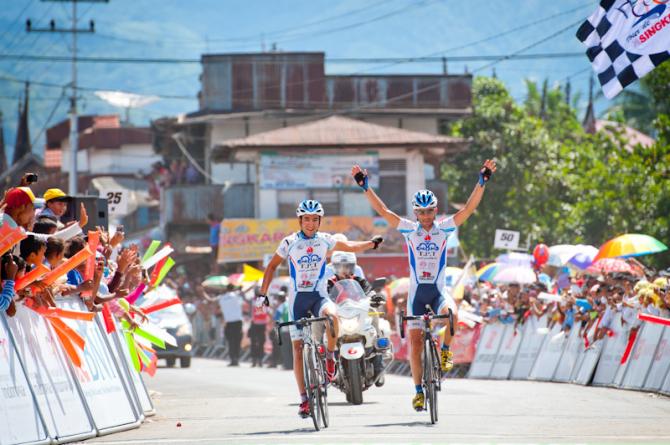
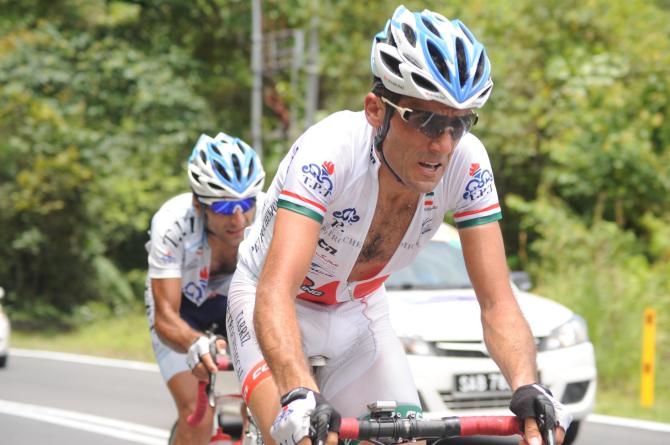
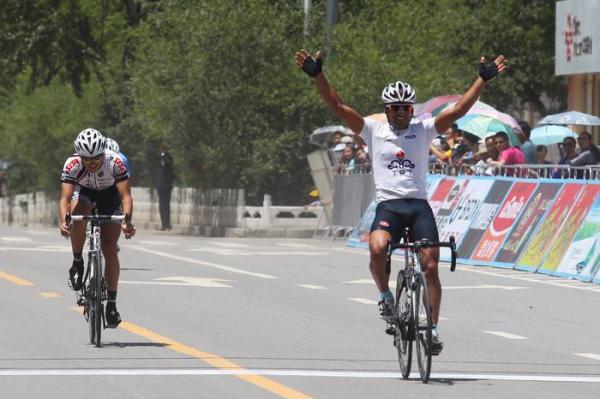
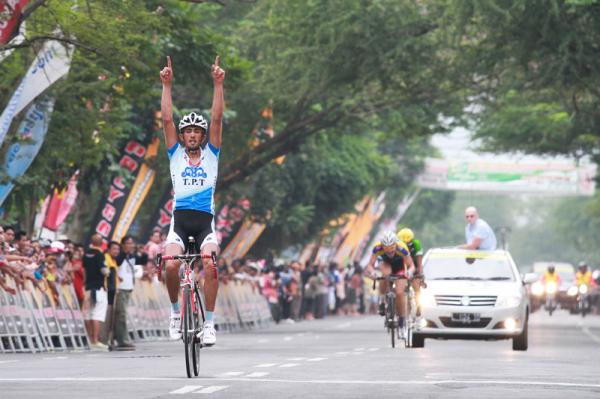
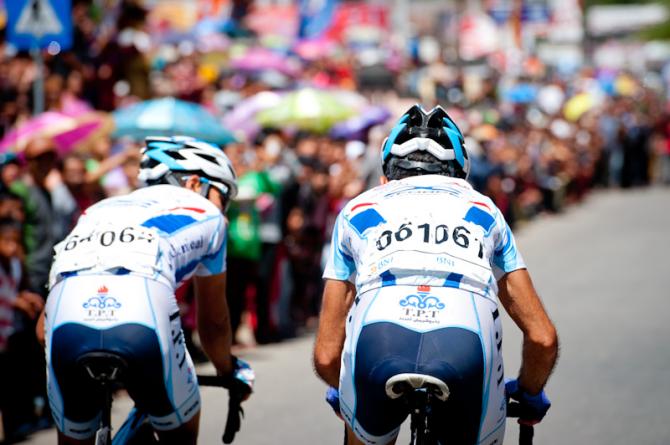
The Tour of Borneo drew to a close last week, but the fallout following the fourth stage is continuing to unfold. The queen stage of the tour finished with a dominating two-man victory with Tabriz Petrochemical duo Ghader Mizbani and Mirsamad Pourseyedigolakhour finishing over six minutes in front of their nearest rivals on the stage.
After multiple attacks the Iranian pair eventually found themselves clear of a 14-man chase group. The group which contained New Zealand time trial champion, Joseph Cooper (Huon-Genesys), 2014 Sky trainee Nathan Earle (Huon-Genesys), John Ebsen (Baku) and Sea Keong Loh (OCBC) remained dedicated to the chase but the leading Iranian duo pulled away regardless.
Within the initial 30 kilometres of their escapee along the mostly flat valley floor, Mizbani and Pourseyedigolakhour put five minutes into the chasing group of which eight riders remained fully committed. It was only on the final 10 kilometre climb of the day that the two leaders began to concede time after extending their lead to over 11 minutes.
For many within the peloton it was a feeling of déjà vu. Only a few months earlier, Mizbani, along with teammate Amir Kolahdozhagh, finished eight minutes in front of the nearest chasers during the fifth stage of the Tour of Singkarak. In fact it has become a common occurrence to witness powerful two-up attacks from the Tabriz team.
During the Tour of Qinghai Lake in 2010, Hossein Askari and Medhi Sohrabi (Tabriz) took off halfway through the sixth stage. This time they had a passenger in the 18-year-old Nikola Kozomara (Partizan SRBIJA). When the young Serbian's team manager drove up to the breakaway to encourage his young charger, he witnessed his rider sitting on the Iranian duo, in tears. He was unable to contribute to the chase.
During that stage the leading duo held a two and a half minute gap over a bunch closing so fast that there were complaints within the peloton that the leading group was being motor paced. The rider in yellow at the stage start, Radoslav Rogina (Loborika) was in disbelief at the stage finish.
"I cannot believe what's happened," he said. "It's unbelievable how they rode in front."
Get The Leadout Newsletter
The latest race content, interviews, features, reviews and expert buying guides, direct to your inbox!
Following the stage 4 hill top finish in Borneo, Australian rider Dan Bonello (Team Corbusier) commented that feelings within the peloton had not changed.
"There was an incredible amount of talk and discontent in the bunch with not only the invitation of a certain team, but also the style of racing that the same team inflicted on the bunch," he explained.
The discontent lead to a self-policing effort within the peloton whereby teams began refusing to work in breakaways populated by Tabriz riders. To make matters worse, a lack of drug testing at the race left riders pondering the veracity of what occurred before them.
"I think it is ridiculous [the lack of testing]," added Bonello. "In light of what the sport is going through and the process involved with proving the alleged credibility of the sport, to not have doping controls is extremely counter-intuitive."
"The organiser was well aware of the importance of doping control[s] in [the] Tour of Borneo. [The] UCI did not send anti-doping inspector[s] for this race and had advised the organiser to make sure that the participating riders are not under suspicion."
Suspicions justified?
The discontent within the peloton over the performances of some riders is not without substance. Second place finisher on the overall, and second place finisher during stage 4, Mirsamad Pourseyedigolakhour, returned a positive test for EPO during the Tour of Iran in 2011.
Pourseyedigolakhour returned to racing at the 2013 Tour of Qinghai Lake, a race he won after gaining a race winning lead following yet another two up Tabriz attack during the third stage. This performance granted many candid rider responses with Matt Brammeier from Champion Systems taking his frustration to twitter.
"Pan y agua my arse!" Complained the Irish Champion.
According to UCI anti-doping statistics, there have been nine riders from Iran in the last three years to have failed anti-doping tests. And it is this pattern that is tarring all riders from that nation with the same brush. Huon-Genesys manager in Borneo, Steve Price, commented that a lack of testing coinciding with dominating performances only heightens suspicion.
"At the end of the day it devalues the race and leads to a popular view that all teams behave the same way when in fact they don't," he said.
Another problematic piece to the equation is the type of testing that takes place. Testing was conducted at the aforementioned Tour of Singkarak, but it was only urine testing. This has left many teams now calling for increased blood testing to take place at races in Asia. This theme, however, is only indicative of a wider trend. In fact, the 2012 WADA Report shows that when testing for EPO, the majority -nearly 70 percent- of out of competition tests conducted are tested for EPO. But the detection rate for EPO in these out of competition tests is very low, just over .1 percent.
On the other hand, in competition EPO testing has a very high detection rate, over .7 percent. But the percentage of in competition tests that are tested for EPO is below 25 percent.
On a more practical note, it was raised that if teams knew in advance that there would be no testing held during certain races, they could simply better allocate funds to travel to races where they knew there would be testing. Although practical, Bonello highlights the opposing argument in stating that the element of surprise is an essential ingredient to the anti-doping front.
"For me I would like to know that there will be doping controls in the sense that you would hope this awareness would mean that all riders are showing up with the knowledge that they may be tested," said Bonello. "On the other hand, if I am going to be a rider that brings certain teams and their performances into question, then I think that no prior knowledge of doping controls for those individuals would be a good thing. That element of surprise could be a huge factor in the effectiveness of the testing."